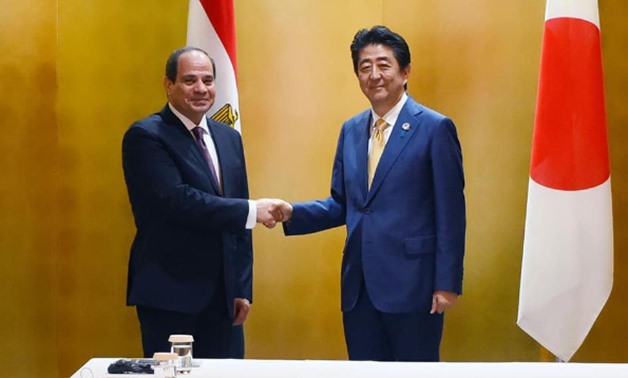By Kembet Bolton
“Africa has never looked so attractive as an investment destination, and I want to see more British businesses seizing the opportunities’’-This call to action by Graham Stuart (Under Secretary of State at the Department of International Trade) in 2019, buttress the need for British investors to pay keen attention to Africa.
“Despite all the talk of a British ‘tilt’ towards the Indo-Pacific, I am greatly reassured by the review’s commitments to engage with partners across Africa. It is well past time that the UK puts Africa at the forefront of its international strategy’ ’Sir Richard Ottaway, chair of UK Foreign Affairs Select Committee, 2010 – 2015.
Why is Africa so important as a trade destination for major world powers? The President of the African Development Bank, Dr Akinwunmi Adesina, may have provided the answer in his speech at the at 2021 UK- Africa Investment Conference when he said ‘’Africa remains a fertile ground for investment’’. The continent offered ample opportunities in terms of natural resources, vast tracts of arable land, a young and rapidly urbanising population, as well as the potentials presented by the launch of the African Continental Free Trade Area (AfCFTA).
Thankfully, the UK has continued to strengthen its relationship with Africa over the years. At the UK-Africa Investment Summit in January 2020, the UK Government announced 27 deals worth a combined £6.5 billion, with a further £8.9 billion of other deals and commitments publicised on the day. Emma Wade-Smith, Her Majesty’s Trade Commissioner for Africa has said that the UK Government’s trade and investment network in Africa has more than doubled in size over the last two years, in recognition of the growing and untapped commercial opportunities that we see across the continent. The UK has been working hard to maintain momentum around its ambition to establish the UK as Africa’s investment partner of choice. Wade-Smith said she was heartened to learn that 10 of the fastest-growing economies were still in Africa, adding that there was an opportunity to blend African and UK innovation.
So how is the relationship between UK and Africa in trades and investment? In 2018, the UK’s Foreign Direct Investment in Africa stood at approximately £39bn. since 2002, the UK’s Private Infrastructure Development Group has invested over £1.95bn into 146 infrastructure projects across Africa, and by 2022, CDC, the UK’s Development Finance Institution aims to make up to £2bn new investments across Africa. Sounds good? That’s not all.
In his article, the UK in Africa, facts and figures, David Whitehouse, the Africa report’s business editor, stated that there are more African countries with shares listed and trading in London than on any other international stock exchange. The UK government’s Department for International Trade (DIT) Africa has more than 100 staff located across 23 of Africa’s 54 countries, which represents a nearly 20% increase in personnel in the region since 2018 and over the past 12 months, trade between Africa and the UK increased by 7.7% and is currently worth nearly £34.2bn. In 2020 alone, UK companies, through the help of DIT Africa, secured businesses that generated £1.2bn back to the UK economy while the UK Export Finance covered £600m of exports on the continent.
The effect of the coronavirus hit the UK more than most other countries, which, of course, left it with a little less energy to focus on Africa. Coronavirus has caused investment and other economic activity in Africa to fade, at the same time, the UK’s exit from the European Union means London needs to build up trading links with other partners to make up for the slump in imports and exports to its closest neighbours. Despite this, the UK has remained upbeat in its relationship with Africa. The second UK Africa investment summit despite the odds, was a great show of the UK’s willingness to maintain the momentum in its relationship with Africa.
To Date, the UK has managed to roll over the EU’s trade deals with 15 African countries, accounting for £21.4 billion ($29.2 billion) of annual trade, while arrangements with other important partners like Ghana and Algeria are still under discussion. Still, on sustaining momentum, the UK adopted the EU’s generalised scheme of preferences, which gives 35 African countries reduced or zeroed tariffs for exports to the UK.
Africa’s economy contracted by 2.1% in 2020, according to African Development Bank (AfDB) president Akinwumi Adesina, although it is expected to recover to 3.4% growth this year as the global economy emerges from the pandemic. While the covid-19 pandemic has slowed Africa’s growth story, it has not been derailed. As sola David-Borha, chief executive of the Africa region at Standard Bank, puts it, “The underlying structural drivers remain firmly in place. The cup is half full, not half empty.”
UK Export Finance CEO Louis Taylor said it has 11 major projects in the pipeline for Africa, worth £4.2 billion ($5.7 billion), in sectors including renewable energy, construction, and healthcare. “Coronavirus has put the brakes on many of our aspirations, he said, but added, “We have a very strong risk appetite for many African countries.”
With the effect of the pandemic so hard hit on Africa, why has there been sustained interest in an African Partnership?
The AfCFTA Effect
On the 1st of January 2021, despite the pandemic, African countries opened their market under the continental free trade agreement, and duty-free trading of goods and services across borders. The new market, created under the African Continental Free Trade Area (AfCFTA) agreement is estimated to be as large as 1.3 billion people across Africa, with a combined gross domestic product (GDP) of $3.4 trillion, has the potential of lifting up to 30 million Africans out of extreme poverty, according to the World Bank. Besides reducing poverty in the continent, the launch of the AfCFTA is essential to deepen the trade and development ties with other regional bodies and global economic powers such as the UK. According to Lord Dolar Popat, UK Prime Minister’s Trade Envoy to Uganda, Rwanda and DRC, a new raft of agreements is designed to multiply trade volumes between Africa and the UK for mutual benefit.
The idea of a common Africa has been a major goal of leaders in the continent for decades. The launch of the AfCFTA thus marked a significant moment for the continent, ushering in frictionless trade in goods and services between all African countries. We have highlighted the gains for intra trade within the continent, but how does the AfCFTA benefits trade flow out of Africa?
Because African countries and businesses do too little with each other, the myriad mutual benefits of intra-continent trade have been sacrificed, making African countries overly reliant on external trading partners. Africa’s intra-regional trade is pegged at only 16%, a far cry compared to 68% for Europe and Asia’s 60%. Simply put, the benefit of trade within African countries were flowing to external countries rather than staying within Africa.
By 2050, more than a quarter of the world’s population will be African, and this population will be mostly young and middle class. Undoubtedly, Africa is where the future lies. Business opportunities are springing at an unprecedented rate, currently worth nearly $6trn. Digitisation, infrastructural improvements as well as political reforms are gradually taking hold. Clearly, Africa is a continent of opportunities, and there are enough solid reasons why it is referred to as the last frontier. It is not late to harness the opportunities that abound in Africa, which is clearly what world powers are doing.
For the UK, having left the European Union, opening the doors of trade with Africa is smart. The commonality the UK shares with Africa, such as values of freedom, the rule of law and the English language, makes a huge difference in the trading relationship with the continent.
Other game changers
The emergence of the UK Export Finance (UKEF) has played a significant role in revitalising Britain’s trade with Africa. This it does by providing direct lending and insurance to exporters and guarantees to banks to share the risks of providing export finance.
The UKEF recently increased its total limit to £42bn to support exports for businesses of all sizes, which has helped create several trade opportunities for British companies. The coverage for Rwanda and Uganda has been increased from £600m to £2.5bn.
The prime minister, Boris Johnson, has also increased his trade envoy programme to appoint 12 Trade Envoys to serve Africa.
The presence of the Department of International Trade (DIT) and the Foreign, Commonwealth and Development Office (FCDO) is increasing around the continent. Despite Covid-19, connectivity between the continent and the UK is rising. Uganda Airlines is set to launch their new direct service from Entebbe to London, and other direct routes to the UK, such as RwandAir’s direct service from Kigali to London. The new routes will play a vital component in building bridges, and the improved connectivity will help boost trade and prosperity relations between the countries.
Indeed, we are at a tipping point in the trade relationship between UK and Africa, and both parties should be ready to put in the work to make this a mutualistic symbiosis.


